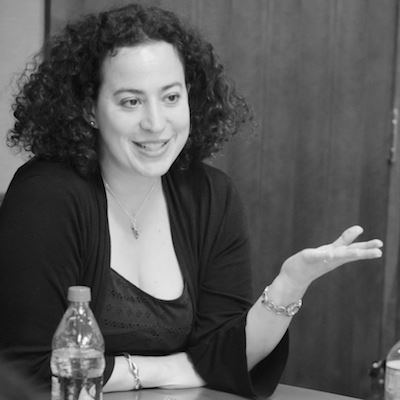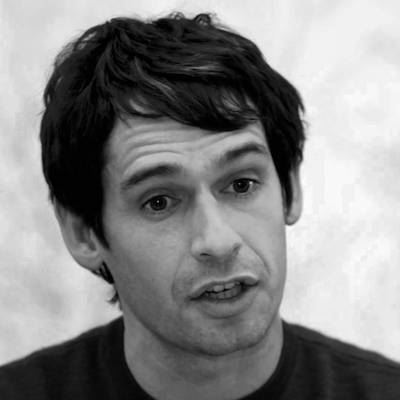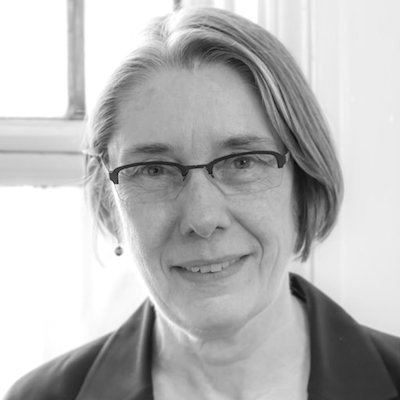2 0 1 9 A u s t r a l a s i a n A s s o c i a t i o n o f P h i l o s o p h y C o n f e r e n c e
Conference Home • Program • Keynotes • Sessions • Streams • Abstracts • Register • Postgraduates • Honours • Alan Saunders Lecture •
All Speakers • About Wollongong • Social Events • Resources & Accessibility
Keynotes 2019
Fiona Macpherson Glasgow Does Virtual Reality Consist in Veridical, Illusory or Hallucinatory Experience? Does virtual reality (VR) involve: (i) illusory or hallucinatory experience of things that are not there, or (ii) veridical experience of computational objects? I show that contemporary thinking about this issue involves a false dichotomy according to which the answer is either (i) or (ii), but not both. I begin this paper by first articulating my own account of illusion and hallucination in part by presenting new cases of illusion and hallucination that have not heretofore been identified. These cases show that the traditional accounts of illusion and hallucination are incorrect. I go on to provide a taxonomy of all of the different kinds of illusion and hallucination that I identify. New instances of illusion and hallucination provide much needed, important data for testing theories of experience and perception—and illuminate the nature of virtual reality experience. I go on to discuss virtual reality experience of the sort that is produced by today, and show that we need to take account of the nature of the technology used to produce it when considering whether the experience is veridical or not. I conclude that VR experience is highly complex, containing a variety of both veridical and non-veridical elements. Fiona Macpherson is Professor of Philosophy at the University of Glasgow, where she is also Director of the Centre for the Study of Perceptual Experience. She was formerly Head of Department (2014 - 2017) and Director of Research in Philosophy (2011 - 2012 and 2014 - 2017). She studied at the University of Glasgow, the University of St Andrews and the University of Stirling. She has been a Kennedy Scholar at Harvard University and a Rosamund Chambers Research Fellow at Girton College, Cambridge. Macpherson has held (visiting) positions at the Australian National University, Umeå University and the Institute of Philosophy, University of London. She was a member of the governing council of the Arts and Humanities Research Council 2014-2018, and re-elected for a second term 2018 - 2021. She is a trustee of the Kennedy Memorial Trust, having been appointed by the British prime minister for a five-year term from 1 October 2014. Macpherson was president of the Scots Philosophical Association (2015-2016) and is currently president of the British Philosophical Association (2018-present). Macpherson's research interests include the nature of consciousness, perception, introspection, imagination and the metaphysics of mind.
Elizabeth Harman Princeton Can Actions be Blameworthy without being Morally Wrong? Abstract: It is natural to think that actions can be blameworthy only if they are morally wrong. Purported counterexamples may come from cases of ignorance, or from cases of doing good things from bad motives; but I argue that these purported counterexamples fail. A more promising route to a counterexample comes from considering the realm of the morally permissible — within this realm, some actions are morally good to do without being required (they are supererogatory) and, more controversially, some actions are morally bad to do without being morally wrong (they are suberogatory). I argue that agents can make moral mistakes in choosing which of their morally permissible options to take. Agents can make morally permissible moral mistakes — but, as I will argue, my view faces a puzzle about blameworthiness, about how to answer the title question. Ultimately, I will argue that actions can be blameworthy without being morally wrong; but a cost comes with giving this answer. Elizabeth Harman is Laurance S. Rockefeller Professor of Philosophy and Human Values at Princeton University. Her publications include “Creation Ethics” (Philosophy and Public Affairs), “‘I’ll Be Glad I Did It’ Reasoning and the Significance of Future Desires” (Philosophical Perspectives), “The Irrelevance of Moral Uncertainty” (Oxford Studies in Metaethics), “Morally Permissible Moral Mistakes” (Ethics), and “Ethics is Hard! What Follows?” (forthcoming). She is co-editor of Norton Introduction to Philosophy, Second Edition (2018), and Norton Introduction to Ethics (2020).
Edouard Machery Pittsburgh Dogmatism and Parochialism In this talk (based on chapter 4 of my recent book, Philosophy Within Its Proper Bounds, OUP 2017) I describe the method of cases—a prominent method in much of philosophy—and I present two arguments based on experimental-philosophy findings that undermine its use in philosophy. Edouard Machery is a Distinguished Professor in the Department of History and Philosophy of Science at the University of Pittsburgh, where he is also the Director of the Center for Philosophy of Science. He is a member of the Center for the Neural Basis of Cognition (University of Pittsburgh-Carnegie Mellon University), and an Adjunct Research Professor in the Institute for Social Research at the University of Michigan. His research focuses on the philosophical issues raised by psychology and cognitive neuroscience with a special interest in concepts, moral psychology, the relevance of evolutionary biology for understanding cognition, modularity, the nature, origins, and ethical significance of prejudiced cognition, the foundation of statistics, and the methods of psychology and cognitive neuroscience. He is also involved in the development of experimental philosophy, having published several noted articles in this field.
Alison Wylie UBC Radiocarbon Dating and Robustness Reasoning in Archaeology Hailed as a revolution that got under way in the 1950s, radiocarbon dating was expected to establish an absolute chronology that would render obsolete the local and relative chronologies on which archaeologists had long relied. Transformative though it has been, the process of bringing these tools of physical dating to bear on archaeological problems has been a long, tortuous process, now described as proceeding through three radiocarbon revolutions. The first revolution, Libby’s initial introduction of radiocarbon dating to archaeology, quickly gave rise to a decades-long process of calibration by which C14 chronologies were corrected and refined, often against the very lines of evidence they were meant to displace. Increasingly, however, the advocates of a third, “pragmatic Bayesian” revolution argue that, no matter how much it is refined, radiocarbon dating cannot on its own resolve the chronological problems that archaeologists address; diverse lines of evidence are required not only to calibrate C14 but to reinforce and constrain one another. This is a genre of robustness reasoning that illustrates its epistemic risks as well as its appeal. I identify a set of conditions that must be met if claims of robustness are to be credible, all of which are an explicit focus of debate in cases of contestation about and reconciliation of chronologies based on legacy data. Alison Wylie is Professor and Canada Research Chair in Philosophy of the Social and Behavioural Sciences at the University of British Columbia. She works on epistemic and ethical/political issues raised by archaeological practice and by feminist research in the social sciences. Recent publications include Material Evidence (2015) and Evidential Reasoning in Archaeology (2016), co-edited and co-authored with archaeologist Bob Chapman; journal articles on “What Knowers Know Well” (Scientiae Studia, 2017) and “How Archaeological Evidence Bites Back (STHV 2017); and contributions to collections such as the Springer Handbook of Model-based Science (2017), Objectivity in Science (2015), How Well do 'Facts' Travel? (2010), Agnotology (2008), The Ethics of Cultural Appropriation (2009) and Embedding Ethics (2005). Alison Wylie also delivered the 2019 Alan Saunders Lecture. |





